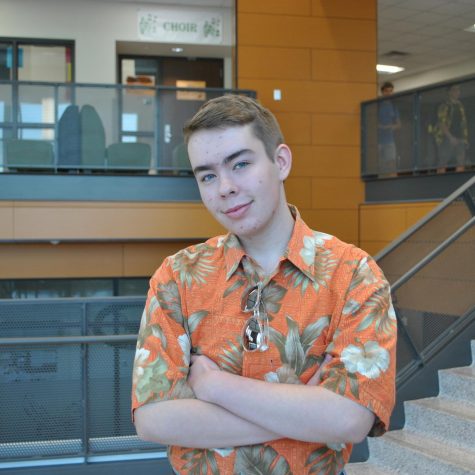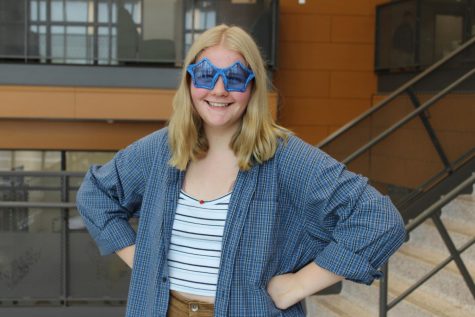Mission Trips: Powerful or Problematic?
May 23, 2018
Learning vs. Leeching
The definition and goals of mission trips have changed drastically over the past 50 years, with solely faith-based missions turning instead to service-based projects and community outreach opportunities. While there are many instances of missionaries using their time in other countries to satisfy a need for self-fulfillment and ego-inflation, church communities across the nation have demonstrated the ability to launch constructive and effective pilgrimages to foreign areas in good faith. This is achieved through education specific to the history of the area prior to the trip, the desire to learn from the people encountered, and an understanding that knowledge is only useful when it is followed by further action.
Speaking from personal experience, mission and service trips are not filled solely by ignorant high schoolers who want a medal for doing the bare minimum. When the Edina Community Lutheran Church decided to send a youth group to El Salvador in the fall of 2016, the goal was to learn about Salvadoran history and to create connections with the members of our sister church in the town of Galilea, Cristo De Paz. Painting the church walls and praying with the children were certainly fun and rewarding pastimes, but the faith-oriented vocation of our trip was to learn about the past and the present and to experience seven days in a life different than our own.
An important part of preparing for this pilgrimage were multiple pre-trip gatherings held in ECLC. Through reading materials, presentations, lectures, and a screening of the movie Romero (1989), we gained valuable knowledge before embarking on our trip. These gatherings were important because it ensured our group was going to a new place with as much knowledge and global worldview as we could, instead of bringing only ignorance and privilege.
JD Mechelke, the youth director at ECLC and the lead organizer of the El Salvador pilgrimage, based his format of the trip off of Paulo Freire’s 1968 novel Pedagogy of the Oppressed, the foundation of the socio-philosophical concept, critical pedagogy. “Education is a form of social justice. The purpose of the El Salvador trip was to educate ourselves on the people there and their stories,” Mechelke said, citing the work of Paul Farmer, a humanitarian physician, as inspiration. “The key to social analysis on pilgrimages is making sure what you’re learning about is geographically broad, and historically deep,” Mechelke said. ECLC’s pilgrimage around San Salvador, Galilea, and Suchitoto was largely education-oriented. We heard from many speakers who educated us about the role that the Carter and Reagan administrations played in pouring money into the Salvadoran Civil War, the leadership of Oscar Romero, and the socioeconomic inequalities that still exist in El Salvador today. Through lectures, photos, and personal stories from eyewitnesses and the members of Cristo De Paz, we all gained a wealth of new information that our history courses had never touched on. While we had been taught the basics of the history we would later see before us, a powerpoint could never prepare us for the sheer impact that came with being on the same soil as a U.S funded massacre.
To truly have a “good mission trip” the missionaries must view the people they encounter as subjects rather than objects and aim to do something “with them” as opposed to “for them.” This perspective prevents a savior complex and ensures that students are going into the trip viewing community members as people, not pawns. As displayed in Haiti mission trips and their repeated failures to provide anything more than self-satisfaction for visiting students and the constant presence of resource-sucking Christian welldoers, poorly organized mission trips have the potential to further modern-day colonialism, perpetuating a never-ending cycle of poverty. However, while some missionaries have failed bitterly at change, there is still a large potential for genuine good if critical pedagogy is applied. One organization’s failure should not close the door to another’s success.
Education through experience is one of the most important aspects of mission and service trips. However, the power of knowledge is useless if not given meaning through action. It is not enough for missionaries to learn a few foreign words and put up a fence only to pat themselves on the back and fly back to running water and college applications. To make a tangible difference, knowledge has to be broadcasted and used as a tool to attempt to fix the problems students learned about. This can be done through fundraisers, forums, or even social media. Members of the El Salvador trip took action by creating educational posts, holding a church forum, and funding the education of children we met at Cristo De Paz.
All in all, mission trips are a complex subject with many different definitions, variables, and possible outcomes. Reflection, meticulous preparation, and responsibility are all facets of a productive and dually beneficial pilgrimage, but the intention is the starting and ending point. If there is not a genuine desire to create connections, change, and new perspectives, the trip isn’t worth the cost for the church, or the “less fortunate” country.

With a resume chock full of empty space, Page Editor Greyson Mize is a force to be reckoned with in all career realms. Although he has many talents, Mize...
Self-serving “Service”
Although mission trips were originally created to provide aid to those worse off in society, now these trips have turned into tools to pad college applications, achieve self-fulfillment, and exacerbate the savior complex.
In today’s competitive society, high schoolers will do anything to make their college applications as impressive as possible. Similar to picking up a sport they don’t particularly like, or deciding to adopt slam poetry to seem versatile and quirky, students use mission trips to appear as an exceptionally altruistic candidate.
There’s a reason why college counselors caution against writing an admissions essay on mission trips: they are constantly exploited. Presenting the narrative of“having your own life changed” while changing an orphan’s life in Haiti in the hopes of convincing a college admissions officer what a great person you are is not only an act of exploitation, but most of the time, a falsehood.
Despite being on a mission to provide aid, the main goal of student mission trips is often to provide self-fulfillment to the volunteer instead of actually making a difference. The truth is that the orphan wasn’t changed because you spent a week there, nor has their life been changed by the countless influx of volunteers who claimed to change their life before you. Instead, the only consistent occurrence is an inflation of egos that came as a result of “doing good in the world.” For a majority of the time volunteers are not only not helpful, but actually do more harm than good by utilizing resources that could have been better allocated to make a change. Along with this, for a majority of the time, these trips last a week or two, at most a year. With the constant influx of people coming just to leave, no real change can be made.
As surprising as it may seem, the skills required to create change in a nation or community are not those utilized on mission trips. If one wanted to actually make a lasting impact instead “changing a life” by reading a young child a book, they would be more successful working to depollute the water supply, which has a long lasting positive influence on health and elongates lifespans. Despite these important changes that could happen, most mission trips don’t take that approach.
When asked reasoning for attending a mission trip, a majority of the time, the reasons are all self-interested and only hurt those they’re attempting to help. “I want to see the world from a new perspective,” or “I want to create change in the world” are all statements that reflect a desire to be fulfilled. The question then becomes, who’s world are you really changing and whose perspective are you changing? The answer to this question is often self-interested and in turn deeply flawed. Using time and money to go and provide surface level “help” to a place in need often costs more than what aid is provided.
This perspective is extremely harmful in that it exacerbates the so-called “savior complex,” the belief that you have the ability to save those you are helping, and continues to perpetuate a colonized/colonizer reality. The mentality of saving is one that similarity was shared by Europeans who chose to colonize African and Asian land. Much like the ways in which social Darwinism and the spread of religion occurred between colonized and colonizing countries, the mission trip model resembles these values. Essentially, volunteers go in with a superiority complex that drives them to save those who have less than themselves. The response to this, of course, is that, why does it matter what the motivations are if people are being helped. Often, mission trips produce more harm than good, shedding the positive externalities for negative repercussions that serve as a vestibule for selfishness.
If one wishes to go on a mission trip they need to look inwardly and ask themselves why. If the answer is self-interested or stemming from a desire to act as a savior to groups of people, then the resources being used could go to an effort that could actually begin to make a real difference. Creating change and making the world a better place is something most people dream of, but it’s important to distinguish wanting to change the world with wanting to change your world.

As a proud Ravenclaw, avid reader, and coffee addict, it is no doubt that staff writer Kyra Bergerud has a notable presence at EHS as a nerd. Hovering...